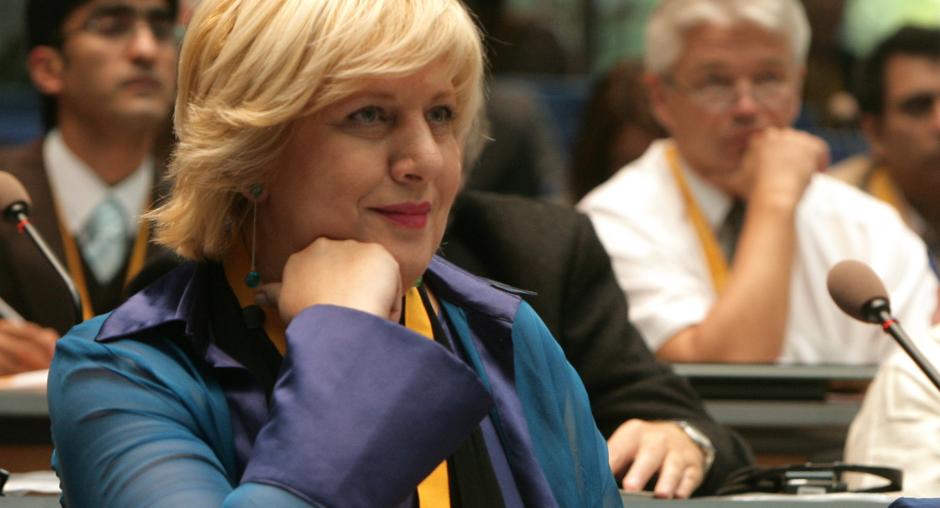Proposals to regulate Internet could threaten freedom of expression, warns OSCE media freedom representative

VIENNA, 28 September 2011 – The OSCE Representative on Freedom of the Media, Dunja Mijatović, voiced concern today about Internet regulation policies proposed by several participating States and reminded them of their OSCE media freedom commitments.
“Such initiatives endanger freedom of expression and risk erecting ‘mind walls’ - barriers to the flow of information and ideas,” Mijatović said.
She cited in particular an initiative by Russia, Tajikistan and Uzbekistan, among others, to introduce an “international code of conduct for information security”, a proposal they would like to see adopted as a United Nations resolution.
“Especially worrying is the draft code requesting States to curb ‘the dissemination of information that incites terrorism, secessionism or extremism or that undermines other countries’ political, economic and social stability, as well as their spiritual and cultural environment,’” Mijatović said.
“This neglects the fact that any country’s ‘spiritual and cultural environment’ is enriched by a free flow of information and a vibrant civil society, as well as by a free and pluralistic media fostering debate, in particular on controversial issues of public interest. As is already the case with the national laws in the countries that support this initiative, the draft code relies on subjective and vague notions of ‘secessionism’ and ‘extremism’”.
“Although States do have a legitimate right to ensure their own stability and protect themselves from all forms of crime, OSCE commitments rest on the core idea that freedom and security are intimately linked. There can be no freedom without security and no security without freedom,” she added.
Mijatović also noted with concern that already in August the presidents of Armenia, Belarus, Kazakhstan, Kyrgyzstan, Russia and Tajikistan, citing security reasons, agreed to develop a common strategy to regulate and control the Internet, particularly social networks, on a regional level. In addition, the prosecutor-generals of several of these countries called for government control over social networks at a meeting in Minsk on 14 September.
“Such proposals risk fragmenting the Internet, thus cutting off the users of those countries from access to the global information society and thereby interrupting the free flow of information,” Mijatović warned.
“Free Internet, including social networks, blogs and online news media, leads to more transparency and political accountability worldwide – and this must be preserved.”
Mijatović urged the respective governments to reconsider their Internet strategies, keeping in mind the borderless nature of the Internet, and to ensure that it remains an open and public forum for freedom of expression for their citizens, in line with OSCE commitments and international standards of media freedom.
She advised the respective governments to apply the recommendations in the report produced by her Office on Freedom of Expression on the Internet as well as the Joint Declaration on Freedom of Expression and the Internet, adopted in June by the rapporteurs on freedom of expression of the UN, the Organization of American States and the African Union with the OSCE Representative on Freedom of the Media.
The Representative offered her Office’s assistance to participating States in developing Internet regulation policies in line with OSCE commitments and international standards of media freedom.
